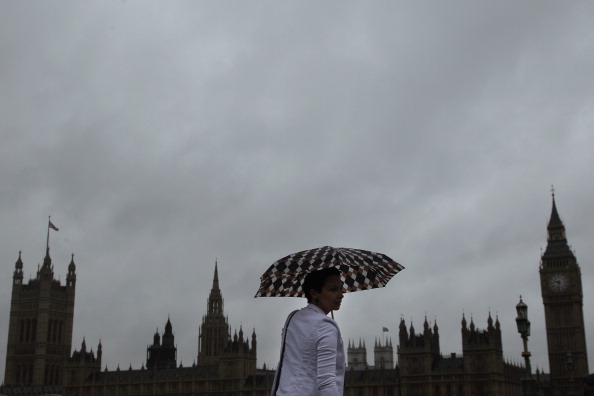Blame the Fixed-term Parliaments Act for this utter chaos in Westminster

The BBC podcast series The Political Butterfly Effect explores the theory that even the tiniest of events can have vast and unintended consequences.
If you’re curious how a bar fight may have caused Brexit, or what the meat extract product Bovril has to do with keeping Britain out of the euro, it’s worth a listen.
There are many directions in which to point the finger of blame for the tragedy of errors currently underway in Westminster, depending on how far back you go: Dominic Cummings’ gamble to prorogue parliament, Theresa May’s stubbornness in trying to force through a widely unpopular deal, opposition MPs refusing to look for a workable Brexit compromise, the folly of the 2017 General Election, or even David Cameron’s decision to call the referendum in the first place.
But I would look back further in search of a culprit, to the disastrous move to pass the Fixed-term Parliaments Act (FTPA) in 2011.
Given the present political psychodrama, it is hard to remember that the aftermath of the 2010 election was considered a time of instability and chaos. Hung parliaments are rare in Britain (at the time, there had been only one since 1929), and with the economy still reeling from the financial crisis, there was concern that the inability of any single party to control the House of Commons would be a recipe for volatility and stalemate when clear leadership was required.
The FTPA, which emerged out of the coalition negotiations between the Conservatives and Liberal Democrats, was intended to alleviate some of this uncertainty. By removing Cameron’s ability to call a snap election as soon as it was favourable for his party, Nick Clegg could have some assurance that the partnership would be genuine, while the Tories were reassured that the Lib Dems wouldn’t cut and run when the going got tough.
Alas, in attempting to solve one problem, Cameron and Clegg created a different one – as Boris Johnson, who has had his demands for a General Election refused twice by MPs, has found out. Nor is Boris the only victim – the FTPA has inadvertently shattered the fundamental principle behind the British democratic system.
As a parliamentary democracy, UK Prime Ministers derive their power from being able to control parliament.
The Prime Minister governs because they control the party with the most MPs, which in turn controls the House of Commons. If they cannot, the logic of the system dictates that they step aside for someone who can, or hold an election to try to change the parliamentary maths.
Post-2011 Britain is not the only country to have fixed terms, but most parliamentary democracies do not – and for precisely the reason that we now see. Because if a Prime Minister loses control of the Commons – as Boris, who now has a working majority of minus 43, evidently has – there needs to be a way to reboot the system.
This is what the Prime Minister has tried to do, but without a majority to vote it through, the FTPA prevents him from calling an election. His only route to give the electorate a say now is to hold a vote of no confidence in himself, which risks a messy interim period during which an opposition figure could take control.
Meanwhile, anti-Boris MPs have managed to form their own majority, passing laws to try to force the government into doing their bidding. There is even now talk of keeping the shackled PM in office until the spring.
This is not to admonish opposition MPs for denying an election they know will work against them. They are acting rationally – both sides have been playing dirty and hunting for procedural tricks to win this game. And while many have blamed this impasse on the divisive nature of Brexit, the roots of the crisis go deeper.
The coalition government removed from the political system its main mechanism for fixing itself. Like an infected wound which cannot heal until it is cleansed, the bitter divisions in parliament cannot be repaired with the present Commons dynamics.
The FTPA did not cause the Brexit crisis, but through the political butterfly effect, it has made it almost impossible to resolve it.
Main image credit: Getty